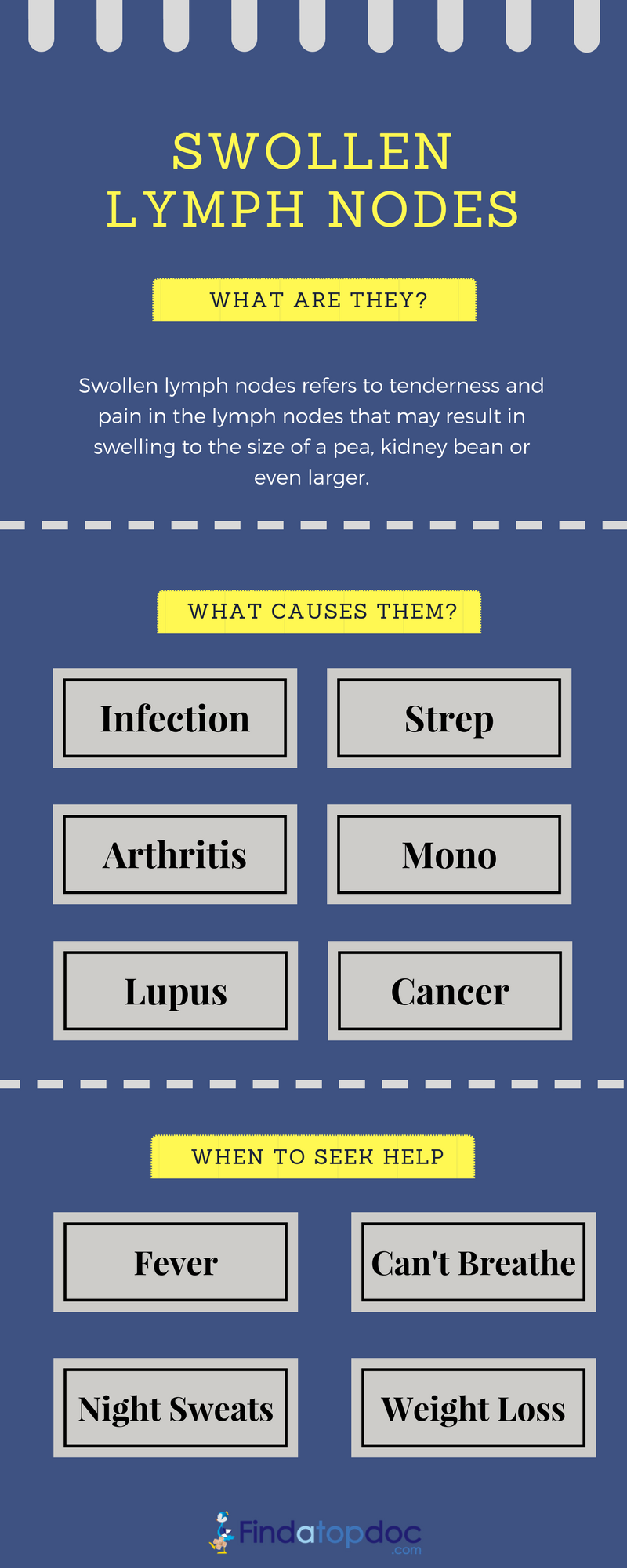When to Go to the Doctor for Swollen Lymph Nodes

Lymph nodes are present all over the body. Sometimes, they can be felt as lumps underneath the skin. Oftentimes, the nodes in the neck are palpable. The lymph nodes under the skin become more palpable and more noticeable if they are swollen. But, if the lymph nodes are located near the organs they cannot be seen or felt when swollen.
Most of the time, the cause of swollen lymph nodes is idiopathic. Usually, it is a result of contact with viruses and bacteria. A swollen lymph node caused by infection is referred to as lymphadenitis. Cancer is seldom a cause for swollen lymph nodes.
Generally, a swollen lymph node is a sign that there’s something wrong in the body. When lymph nodes start to swell, painful and tender lumps manifest. In addition, the swollen lymph nodes may become the size of a kidney bean or pea, sometimes larger.
Signs and symptoms of swollen lymph nodes depend on the cause. It may include any of the following:
- Sore throat
- Runny nose
- Fever
- Swollen limb
- Night sweats
- Fixed, hardened, rapidly growing nodes
- General swelling of lymph nodes in the body
When to See a Doctor
Normally, swollen lymph nodes go back to normal when the underlying cause, like an infection is resolved. Swollen lymph nodes caused by viral infections are quite common. Just like in the case of frequent throat infections, the nodes in the neck can swell intermittently. This condition is often mild. However, if your lymph nodes become swollen for no apparent reason, then you should be concerned about it.
The moment you notice a swollen lymph node, you must see your doctor. A visit to the doctor is needed to determine if the swollen lymph nodes:
- Appeared for no obvious reason
- Appeared just below or just above the clavicle or collarbone
- Feel rubbery or hard
- Continue to increase in size
- Due to an infection that does not subside within two weeks
- Do not move when pushed
- Have been present for more than two weeks
- Accompanied by difficulty breathing or swallowing and sore throat
- Night sweats, persistent fever and unexplained weight loss
Usually, the doctor is able to begin the examination and potential treatments. If needed, the doctor will require some tests to determine the cause of the swollen lymph nodes. These tests may include blood tests, biopsy, ultrasound scan or CT (computerized tomography) scan. During a biopsy, a small sample of fluid will be taken from the swollen lymph node and will be tested.
If a person has no obvious infection but is experiencing weight loss, night sweats or fever, a thorough evaluation is needed. People who received appropriate treatment for infection but still show signs of swollen lymph nodes, still need to see their doctor.
For people with cancer or who have received cancer treatment, may notice a new lymph node in the area around the cancer. If so, your doctor must be notified immediately.
Treatment is determined by the cause for the swollen lymph nodes.











